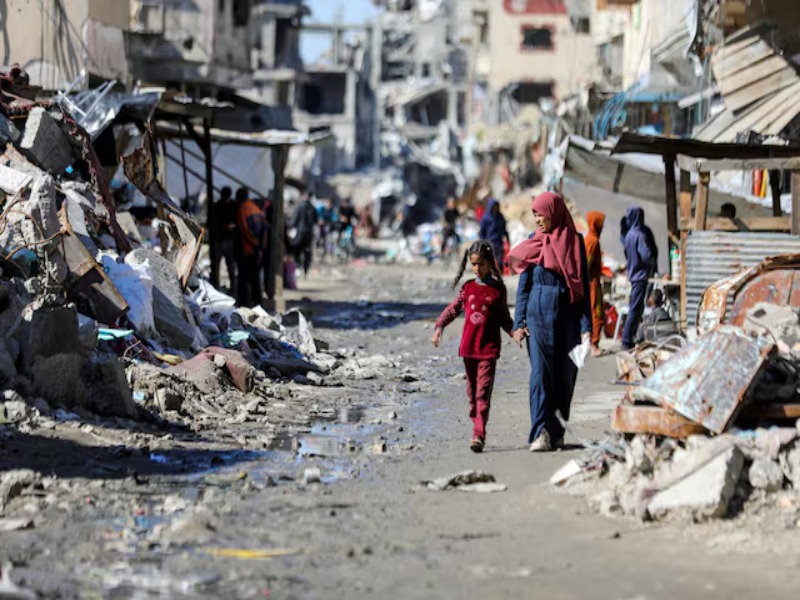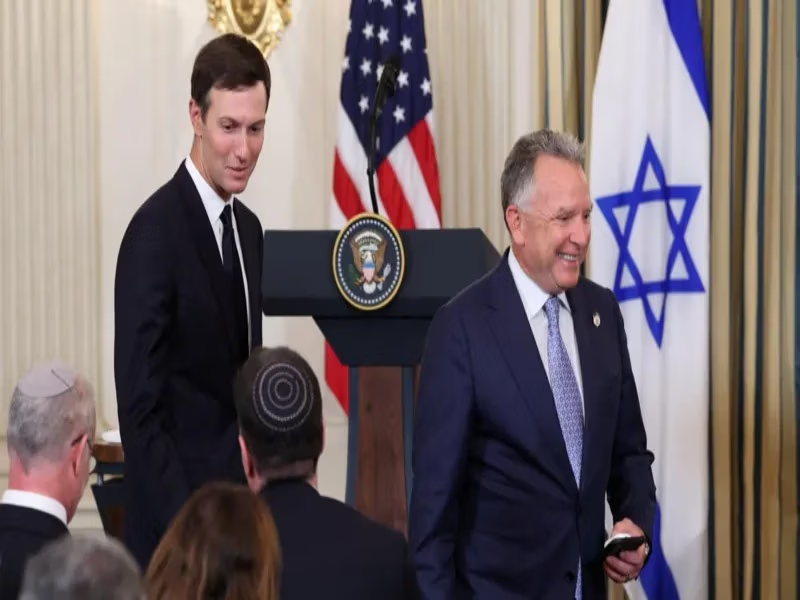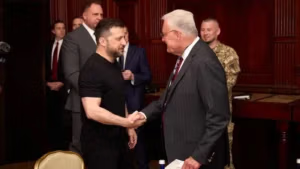The US special envoy Steve Witkoff and the son-in-law of US President Donald Trump, Jared Kushner, will be a part of the Gaza peace plan meetings between Israeli and Hamas negotiators in Egypt on Wednesday.
A senior Palestinian official familiar with the negotiations reported BBC that their arrival follows a second day of oblique negotiations on Tuesday that yielded no tangible results.
Trump sounded optimistic on an occasion when Israeli’s marking the second year of the 7 October Hamas-led attacks on their nation, stating “there’s a possibility that we could have peace in the Middle East.”
Prime Minister of Israel, Benjamin Netanyahu, had nothing to say about the state of the negotiations, although he informed Israelis that they were in “fateful days of decision.”
Netanyahu, in his post on X (formerly known as Twitter), mentioned that Israel would take more actions to reach the war objectives: “The return of all the kidnapped, the elimination of the Hamas regime, and the promise that Gaza will no longer pose a threat to Israel.”
A familiar source informed the BBC that Witkoff and Kushner were supposed to leave the US on Tuesday evening and arrive in Egypt on Wednesday.
Prime Minister of Qatar, Sheikh Mohammed bin Abdul Rahman Al Thani, who is considered a key mediator, will also attend the talks, according to an official of the Reuters news agency.
The official reported that the presence of the Al Thani at the meeting will be “pushing forward the Gaza ceasefire plan and hostage release agreement.”
A senior Palestinian official involved in the negotiations informed the BBC that an evening round of indirect negotiations commenced at 19:00 local time (16:00 GMT).
The official stated about the end of a morning session without any tangible outcomes, against the disagreements in the proposed maps of Israeli withdrawal from Gaza, and in promises of Hamas that Israel will not resume fighting after the initial period of the agreement.
He also added that “tough and have yet to produce any real breakthrough”, therefore, the mediators were making all efforts to reduce the divergences between the two parties.

Trump responded to the issues on Tuesday, informing reporters that “we’re going to do everything possible to make sure everybody adheres to the deal.”
Previously, one of the Palestinian officials remarked that the talks were aimed at achieving five main areas of concern, which included: a permanent ceasefire; the release of the remaining hostages held by Hamas in exchange of Palestinian prisoners and detainees in Gaza; withdrawal of the Israeli forces to Gaza; plans of humanitarian deliveries after the war and the government of the territory after the war.
Chief Hamas negotiator Khalil al-Hayya, who Israel also attacked last month in a stream of air attacks on the capital of Qatar, told the Egyptian state-linked Al Qahera News TV that the group had prepared to have “serious and responsible negotiations.”
Hayya stated that Hamas was willing to strike a deal, but it required “real guarantees” by Trump and the international community that the war would not begin again.
A senior Hamas official known as Fawzi Barhoum stated that the negotiators in the group were striving to eliminate “all obstacles to an agreement that meets the aspirations of our people”.
Trump added that the future of peace was a “something even beyond the Gaza situation”, adding that “we want the release of the hostages immediately.”
UN Secretary General António Guterres, in a message on the second year of the 7 October attacks, the worst day in Jewish history since the Holocaust, urged all sides to accept the peace plan presented by Trump, and the chance is a “historic opportunity” to “bring this tragic conflict to an end.”
The opinion polls have been offering a consistent reading that approximately 70 percent of the Israeli’s would prefer the war to stop with the hostages being released.
In reaction to an attack by the Hamas-led forces on southern Israel on 7 October 2023, the Israeli military initiated a campaign in Gaza in which approximately 1,200 people were killed and 251 others taken hostage.
Since then, at least 67,173 have been killed by Israeli military operations in Gaza, including 20,179 children, according to the Hamas-run health ministry in the territory. The UN and other international organizations consider its figures to be credible.
The ministry has indicated that 460 additional deaths have been caused by the impact of malnutrition since the war erupted, with the latest 182 being reported since a famine was declared in Gaza City in August by the Integrated Food Security Phase Classification (IPC).
The UN-based agency reported that over half a million individuals in Gaza were in a catastrophic condition, which was marked by “starvation, destitution and death.” Meanwhile, Netanyahu has consistently refuted the fact that starvation is occurring in Gaza.
Last month, a UN commission of inquiry alleged Israel had perpetrated genocide against Palestinians in Gaza, in a report which Israel’s foreign ministry categorically denied as “distorted and false.”






